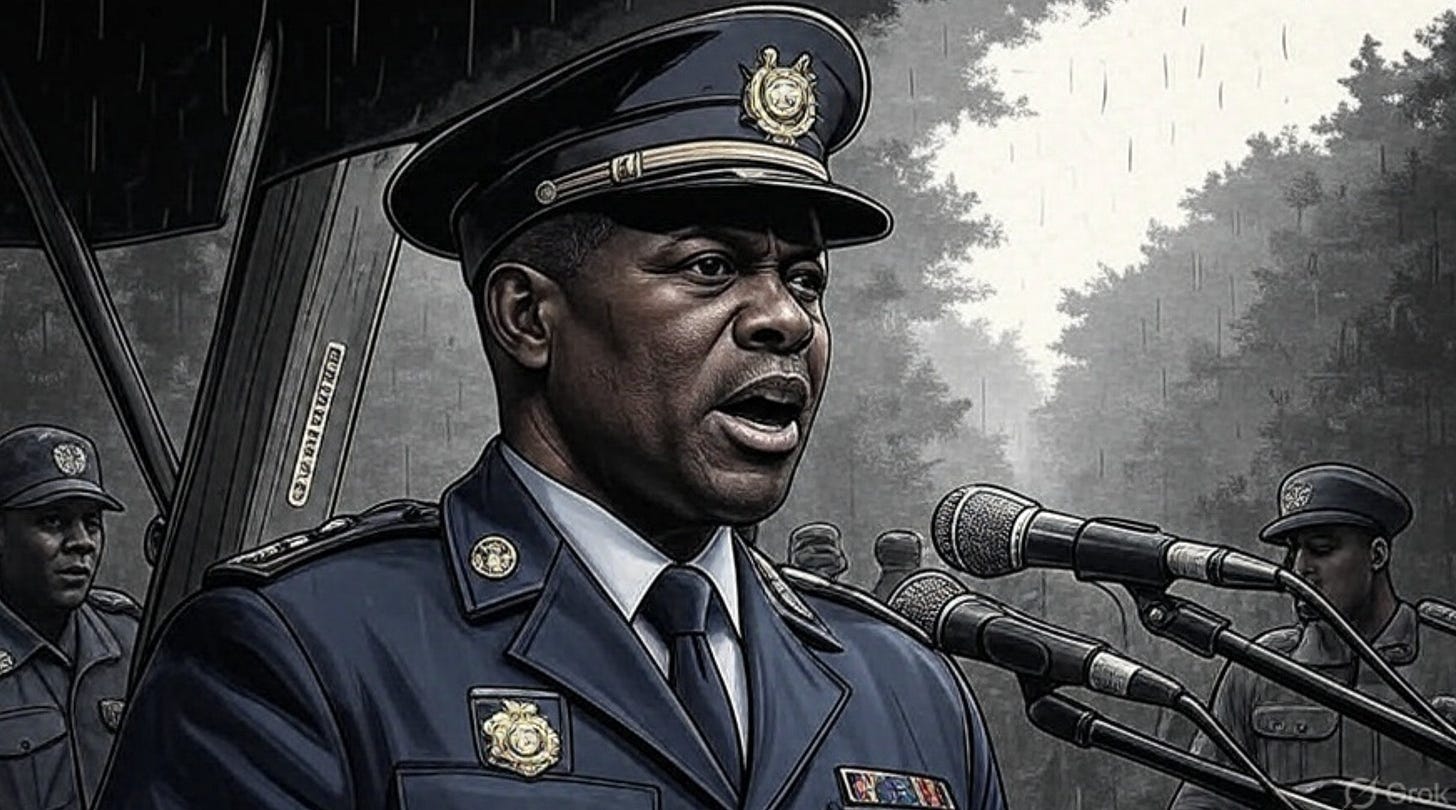The Rot Within the Republic
In a grim reflection of South Africa’s moral decay, the suspension of Deputy National Commissioner of Crime Detection Shadrack Sibiya is less an aberration than a revelation
In a grim reflection of South Africa’s moral decay, the suspension of Deputy National Commissioner of Crime Detection Shadrack Sibiya is less an aberration than a revelation. The hunter has become the hunted, his home raided, his alliances dissected under the cold fluorescence of official inquiry. Yet this spectacle of accountability—this theater of investigation—reveals not renewal, but rot.
The crisis within South African policing is not the story of a single man’s corruption. It is the anatomy of a system hollowed out by greed, patronage, and power. For decades, the police have functioned less as protectors of the public than as enforcers of political expedience—servants not of justice, but of those who wield it. Beneath the rhetoric of reform lies a bureaucracy addicted to impunity, where loyalty is purchased and truth is expendable.
Sibiya’s fall, however sensational, is only one thread in a vast tapestry of institutional decay. Each scandal feeds the next; each inquiry fades into silence. The public, numbed by repetition, learns to expect nothing. This erosion of trust is not accidental—it is the logical outcome of a state that long ago traded its moral compass for the currency of survival.
If South Africa’s law enforcement is a mirror, it reflects the condition of the nation itself: fractured, cynical, and adrift. Until justice ceases to be a performance, the republic will continue to rot from within—one scandal at a time.


